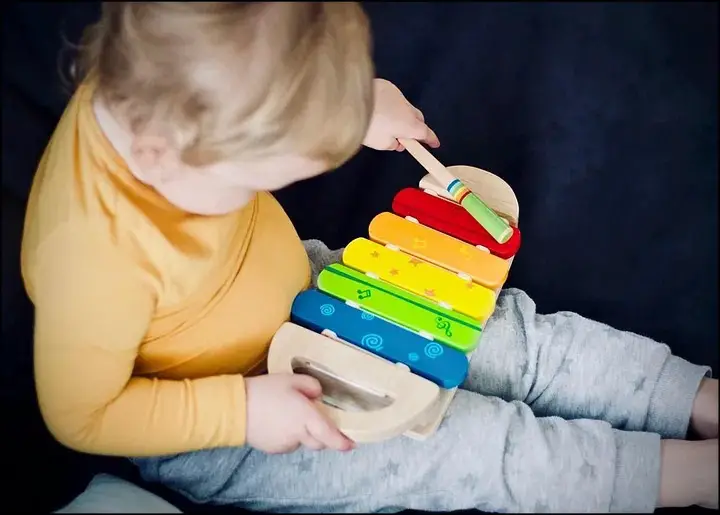You can follow many steps to help your child reach their full potential. For example, M-Fun Assessments such as Receptive Language treatment, ABA (Applied Behavioral Analysis), and Occupational Therapy can help your child develop a range of new skills in a supportive and comfortable environment.
However, you can also do plenty of things at home too! For example, many individuals with autism and related disorders have found that music can be an incredibly vital resource for development and enrichment.
Why Do We Enjoy Listening to Music?
According to various studies, we like listening to music as it “triggers the release of a chemical called dopamine in a part of the brain called the striatum.” This is why we often feel happier when listening or singing along to our favorite songs. As a result, listening to music can be instrumental in improving our mental health while reducing stress and anxiety.
As such, it’s hardly surprising that listening to music is beneficial for children with autism and related disorders, who may be more prone to feeling stressed, anxious, or overwhelmed than their peers.
How Does Music Benefit People with Autism?
Beyond aiding emotional regulation, music, when introduced through therapy or in their daily lives, can be incredibly beneficial for children with autism. For example, it can also help them when it comes to
- Communicating
- Socializing
- Changing their perspective
Communicating
Children with autism and related disorders sometimes find it harder to develop their communication skills. For example, they may be non-verbal or struggle with non-verbal forms of communication like eye contact.
However, music can provide them with an opportunity to communicate without having to use words. For example, they can use songs or music to describe their feelings without having to find a way to verbalize them.
Socializing
Music can broaden your child’s communication skills and help them develop better social skills or make new friends. For example, according to KidsGym, when you introduce music to your daily routine, “you may notice your child singing along to a song, or even commenting on a social setting where people are listening or dancing to a song-.” They may initiate conversations with others about their favorite singers and musicians or connect with others with the same music taste.
Furthermore, if their interest in music leaves them wanting to learn to play an instrument, this can again improve their social skills as they attend classes or concerts with their peers.
Changing Their Perspective
Many studies have found that listening to music can also help children with autism and related disorders change how they view the world. This could make it easier for them to succeed both socially and academically.
For example, a study found that “musical patterns can provide what an autistic person needs to help them to regulate their thoughts and brain processes, creating more coherent and adaptable responses to the world around them.-”
On a similar thread, the adaptability garnered through listening to music can also help them better regulate or control their emotions. This is because they can turn to music when feeling overwhelmed. .





